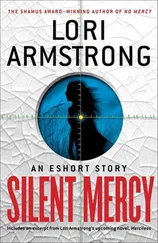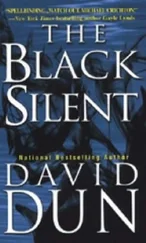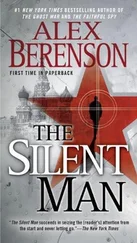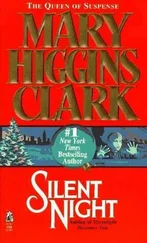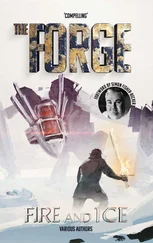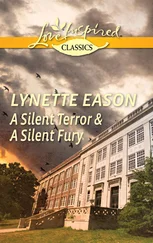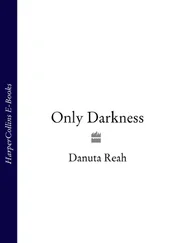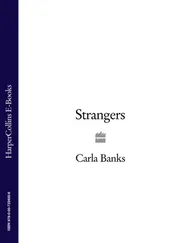Jane’s face was tense. ‘I’ve just come back. I went right through both parks. They weren’t there. I tried the café. They hadn’t been in. Then I thought they might have come back … I don’t know what to do.’
Suzanne thought. ‘Em knows about Lucy hiding, doesn’t she?’
‘Oh yes. She’s helped Sophie deal with it. I gave her the phone. Just in case.’ She looked at Suzanne and shook her head. ‘I’ve been ringing and ringing, but there’s no reply.’
That made Suzanne pause. There didn’t seem a good explanation for that. ‘Maybe the battery’s run down. Or she’s buried it in her bag and it’s turned itself off. Maybe it’s been stolen …’ Her ideas sounded lame and she could see Jane starting to form an objection, so she hurried on. ‘But I think you ought to call someone anyway. Just in case. Maybe there’s been an accident.’
Jane began to look panicked. ‘I don’t know …’ she said.
Suzanne felt out of her depth. She was usually the one who got stressed and upset, and Jane was the one who maintained an air of imperturbable calm. ‘Come on,’ she said. ‘It’ll be nothing. You’ll end up the morning mad as hell with Lucy and wondering why you got in such a state, but let’s play safe. When we’ve phoned, I’ll go back to the park and look.’
‘You’ve been through the park.’ Jane’s eyes were wide and frightened. ‘And you didn’t see them either, did you?’
Suzanne shook her head. ‘No, but I wasn’t looking.’
‘If Em had seen you, if Lucy had run off, she would have told you, she would have asked you to help. We’ve both looked. They’re not there.’
Suzanne was guiding Jane back into the house now, towards the phone. ‘Yes, they are,’ she said. ‘We just didn’t see them. It’s a big park. Do you want me to phone?’ Jane looked at her in blank panic. Suzanne hesitated. She wasn’t sure which number to ring. They needed to contact the police. As she thought about the situation, she was beginning to feel more worried. It was true that the park was big, but it was narrow for most of the way, and she knew the places that Em and Lucy went. If they had been there, she would have seen them, or they would have seen her. Lucy would probably have lain low under the circumstances, but Em would have been pleased, relieved to see her if Lucy had pulled one of her hiding stunts. She thought about Lucy, her thread-limbed fragility, her will of iron. She picked up the receiver and tried the number of Jane’s mobile. She let it ring. There was no reply. Then she dialled 999. This was either nothing, or a very serious emergency.
The mill at Shepherd Wheel was dark under the trees. The doors were padlocked, the bright metal of the hasps gleaming. The windows were shuttered and bolted. The trees stirred as a breeze blew, sending shadows dancing across the water, across the mossy roof. And it began again, faintly, just audible over the sound of the river, just audible to someone standing close to the shuttered windows, just audible to someone with sharp ears, someone who was listening. The ringing of a phone.
Suzanne was familiar with crisis. Crisis was something you moved through with cold detachment, an observer of your own life. Crisis was something that held you, panicked and terrified, behind a frozen façade. Crisis left you drained and wrecked once it had moved on. Crisis for Suzanne was Adam, her younger brother, dead these past six years, and it was her father’s thin, precise features, and his voice: I hold you responsible for this, Suzanne!
She listened to the policewoman telling Jane that children often went missing, that the most reliable teenager in the world could get distracted, and wanted to fast-forward the day to the time when the crisis would be over, one way or another.
Two officers had arrived in response to Suzanne’s call, with commendable but alarming rapidity. A man and a woman. The woman had introduced herself, calm, sympathetic, professional, ‘I’m Hazel Austen. I’m here about your daughter. Lucy, isn’t it?’ With a few quick questions she had the gist of the situation, and was now talking Jane through Emma’s and Lucy’s planned route and routine. ‘… going through the park right now, but I just need you to tell me …’
To distract herself from the knot of tension inside her, Suzanne let her eyes wander round the familiar room. There were pictures: framed prints, some of Jane’s paintings, Lucy’s pictures Blu-tacked erratically to the walls and door. Her toys and books were piled into one corner and tumbled on the slatted shelves that stood by the window. A photograph of Lucy with her father, Joel, was pinned to the shelves by a single drawing pin. That was new. It looked like one of Jane’s photos, and the size and curling edges suggested it was one she had developed herself. The faces, both serious, looked out from a background of blurred lights, Lucy’s fair hair tangled against the darker hair of her father. Lucy’s drawings were stuck to the wall at the height of a child’s head, slightly rumpled, slightly uneven. They were captioned in Lucy’s words and Jane’s writing, each letter carefully copied in different colours by Lucy.
The pictures were part of Lucy’s fantasy world. Flossy my cat in the park, a picture of a stripy animal with rather a lot of teeth; Me and my sisters in the park, a small, fair-haired figure with two taller figures, one fair, one dark; My mum and dad, two tall figures, both with yellow hair like Lucy; The Ash Man’s brother in the park, a dark-haired, smiling figure. Lucy’s invented family had a resident father – unlike the absent, peripatetic Joel – had cats and dogs, had sisters and sometimes brothers. The rest of her world was peopled with stranger characters, like her imaginary friend, Tamby, and the sinister Ash Man – and now, apparently, with monsters.
Suzanne and Jane had shared a bottle of wine in this room the night before, talking among the haphazard clutter while Lucy sat at the table drawing. It had seemed warm and inviting then, with Jane’s vague irrelevancies and Lucy’s intermittent chatter. Now the clutter no longer looked homely and comforting, it looked disrupted, as though a high wind had taken the room apart and let things settle where they would.
‘… cup of tea.’ Suzanne brought herself back sharply. Hazel was speaking to her. Seeing Suzanne’s blank gaze, she said again, ‘I think Jane would like a cup of tea.’
For a moment, the words meant nothing, then Suzanne said, ‘Oh. Yes, of course.’ She brought tea and biscuits from her own house, nipping across the shared yard to her back door. She went back into the room, carrying the tray, and occupied herself setting out cups, pouring tea, putting biscuits on a plate.
‘She’s very independent, and she knows about, you know, not talking to strangers … She wouldn’t go off with anyone.’ Jane was whistling in the dark, as if convincing Hazel could make it true, make it be all right. It was true that Lucy was resourceful and streetwise, Suzanne thought, but she was only six.
She passed Jane a cup of tea, and offered her support. ‘Lucy’s very sensible,’ she said to Hazel, and Jane looked at her gratefully.
Lucy’s colouring book and crayons were on the table and Suzanne moved them to one side. She tried not to look at the picture Lucy had been drawing, but it pulled at her attention and she found herself staring at it as she listened to Hazel telling Jane again that it was still early days, that most missing children turned up safe and sound. It was a typical child’s drawing, a blue sky across the top of the page, and green grass across the bottom. Two figures, a tall one and a small one, stood on the grass. Their arms came out of the sides of their bodies, each finger carefully drawn. They were holding hands. Lucy and Jane. Suzanne looked more closely. No, the taller figure had brown hair. Lucy and Sophie? She could picture Lucy sitting at the table, hunched intently over the paper, her face serious, talking her way through the picture, partly to herself, partly to her mother and Suzanne. And they’re in the park and they’re walking on the big field and also they’re holding hands and they’re smiling, look … But these faces weren’t smiling, she noticed. The mouths were turned down, grim.
Читать дальше

